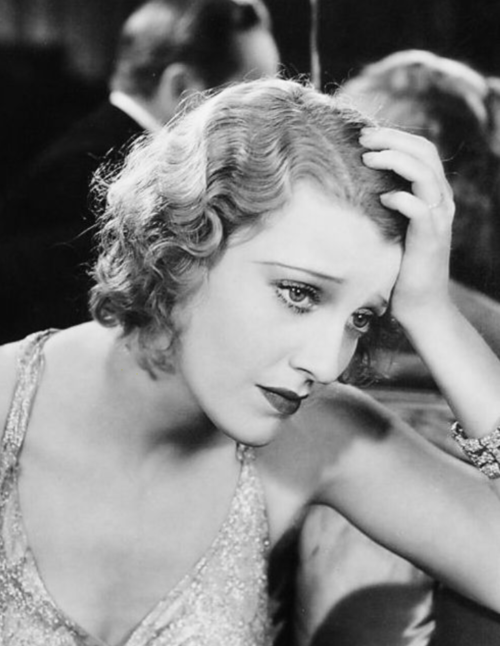In the era of pre-code Hollywood, the scandalous and horndog nature of most screenplays was utterly pervasive. Samson Raphaelson’s (who also wrote such classics as The Merry Widow, The Shop Around the Corner and Suspicion) script–a semi musical–for One Hour With You proved no exception, and co-directors Ernst Lubitsch and George Cukor (bumped to an “assistant” credit after a conflict with Maurice Chevalier ’cause thems the breaks in “the industry”) wielded Chevalier’s natural predilection for coming across as a scoundrel to optimal effect. In the lead role of that rare breed–a happily married husband–the film opens on Dr. Andre Bertier (Chevalier) and Colette Bertier (Jeanette MacDonald) making out in the park with the rest of the “degenerates” who are there with mistresses or “ladies of the evening,” one assumes. And with the film commencing with a scene of the head of the police warning about how people “get” during the spring in Paris, it’s no wonder his men encounter so many debauched hommes in the park, sowing the (many) oats they have left with women who aren’t their wives.
Thus, as le policier comes upon Docteur Bertier and his wife, he is stunned to learn that this is their relation–husband and wife–for no one in a married state could possibly be this passionate about one another.
But it’s true, even three whole years in, Andre and Colette are just mad for one another–sexually and emotionally (or as much as a man can pretend to be emotional). Soon, however, it becomes clear that maybe the only reason this has been the case is because Andre hasn’t been appropriately tempted. But there to fill that void is Mitzi (Genevieve Tobin), who also unfortunately happens to be, unbeknownst to Andre at the outset of his initial encounter, Colette’s best friend. Like any viewer or script supervisor with a presence of mind, one might ask, why has he never met her before? The answer is: she herself has been unhappily married and living in Lausanne–a French-speaking part of Switzerland–with her own husband, Professor Olivier (Roland Young)–only just now coming out of her harlotry and hiding there to visit Colette in Paris. Her husband, already suspicious of her extramarital activities enough to have hired a private detective, is very eager indeed to catch her in the act of one of her misdeeds because, as he phrases it, “In Switzerland they have a very peculiar law. When a husband shoots his wife, they put him in jail.”
This is the very cynical approach on the entire “business” of love. For that’s what it becomes when marriage gets involved. Except in Andre and Colette’s case, they have turned “What a Little Thing Like a Wedding Ring Can Do” into a positive–and a song–commenting on their ability to ravage one another in public as just one of the many benefits of being wed. To Mitzi, however, this legal binding is nothing but an inconvenience to her pursuit of, shall we say, satisfaction. And this is where One Hour With You delves further into its misogynistic view of women (encapsulated by the line of dialogue, “You have a right to be wrong. You’re a woman. Women are born to be wrong.”), painting a female as such a Circe that she would even stab her own best friend in the back for the sake of a little dick that she wants/needs. And yes, that’s just what Mitzi is willing to do, to the point of near parody as she gaslights Colette into thinking the culprit is actually a woman named Mademoiselle Martel (Josephine Dunn), invited over to the Bertiers’ for a dinner party, that has her husband philandering for the first time.
Upon having her worst fears confirmed as Mitzi conspires to put all the elements of doubt into place, Colette throws herself onto their bed crying after the party. “Our romance is over,” she bemoans, expressing the very lament that all women feel the first time they hear their significant other fart. Or retch into the toilette after tasting the palpable smell of his or her breath (though likely his). But Andre is later insistent that he is still in love, that his dalliance with her best friend was just that. His less than ardent denial of adultery that evening leads Colette to have further crippling uncertainty about the relationship, fulfilling Mitzi’s plan to push Andre right into her arms. The very same night that Andre’s friend and best man, Adolph (Charles Ruggles), professes his undying devotion to her, suggesting that they, too, take advantage of this loophole in the time-space-fidelity continuum so that Colette can at least feel like she’s achieving some sort of reclamation of dignity for being cheated on without her husband at least having the decency to better conceal it. Thus, she relents to Adolf’s “consolation” despite only doing it to feel not only better about the fact that at least she’s banging (though they’ll have you believe it was some bullshit like “just a kiss”) while Andre is too, but also to assure herself that she is still desirable and not simply–every woman’s worst nightmare–old.
So it is that when the strength of their marriage is put to the test, it is doomed to fail miserably, proving that the entire premise of monogamy as peddled by the combined forces of government institutions and advertising agencies in the twentieth century was a lie–specifically slathered onto the public via propaganda for the sake of the economy (wives having all that buying power when needling their husbands for girdles, cigarettes, anti-aging cream and any other manner of useless object in between). Yet in truth, One Hour With You, while utterly crass and grotesque in its implications, at least had the courage and decency to assert that even the most “in love” of heteronormative people (men) are prone to give in to a different body when the boredom of “possessing” but one vagina can no longer be ignored.



















